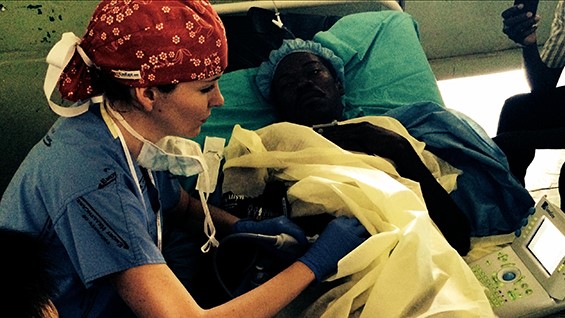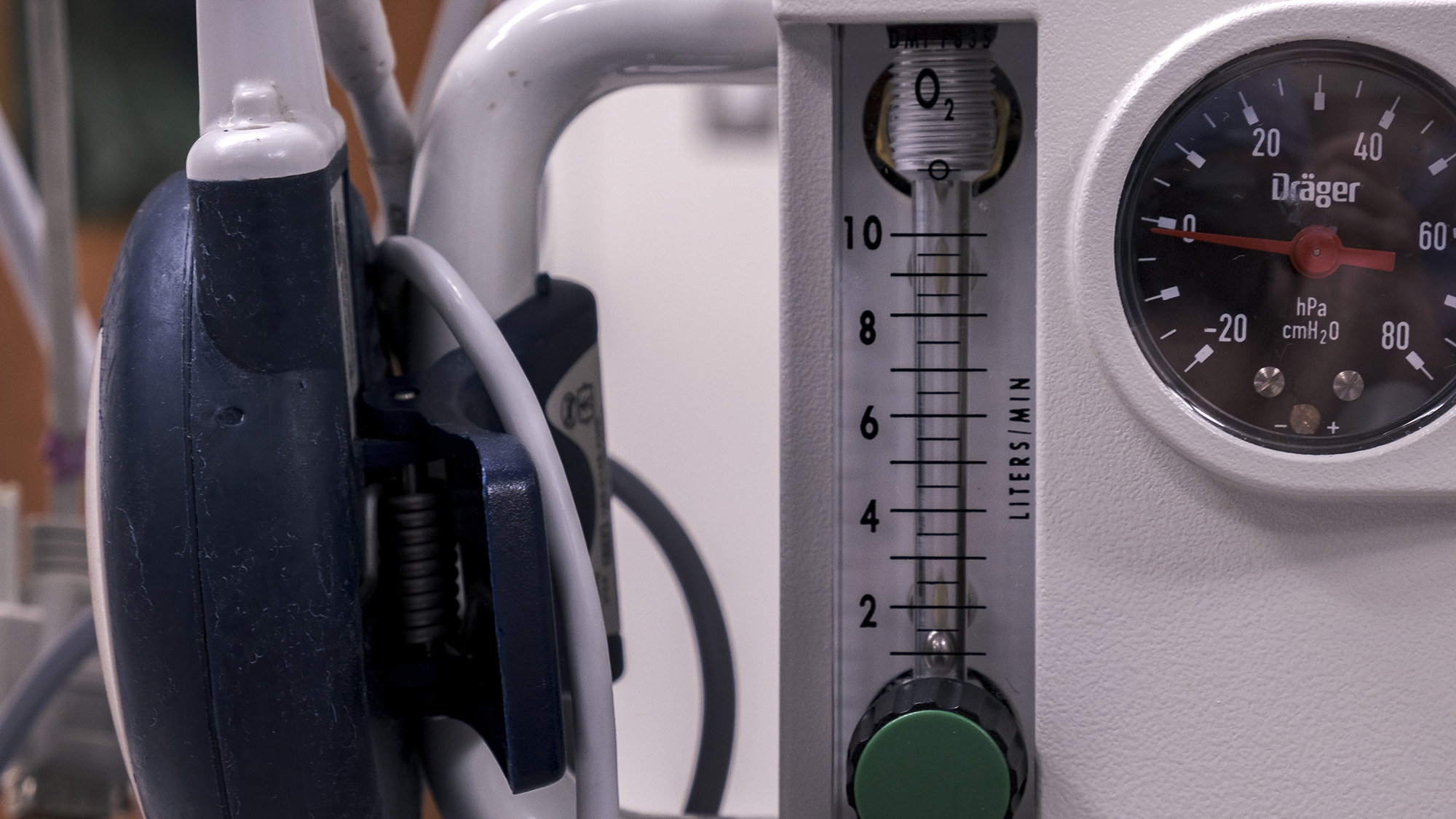About Global Health

Emory Anesthesiology residents, fellows, and faculty members are active in global health initiatives. A critical global health program we are involved in is an annual trip to Haiti to provide medical care. Our teams travel alongside other Emory medical students, nurses, and surgeons for two weeks each year.
During the program, organized by Emory medical students, Emory team members set up clinics at Hôpital St. Thérèse, where they see patients from early in the morning to late at night. Treating more than 60 patients during each trip, anesthesiologists provide necessary medical care while training the next generation of physicians.
Emory Medishare Haiti
The Department of Anesthesiology at Emory is able to provide two residents per year with the opportunity to take part in the Emory Medishare trip to Haiti, stated Michael Evans, MD (Class of 2017 ). This year, I was fortunate enough to travel to Hinche, Haiti, with two fantastic anesthetists and Dr. Vikas O’Reilly-Shah as our attending anesthesiologist. We went down for the first week of the trip to set up shop, assess the resources available to us, and prepare to anesthetize a wide variety of patients for a veritable plethora of surgical operations.
In the past, many of the surgeries were accomplished under spinal, including prostatectomies and hernias. This year, the majority of our cases during the first week were performed under general anesthesia, which meant special care had to be taken to ensure we had both supplies and medications to last the full two weeks of the operative portion of the trip. We also maintained close contact with the anesthesia team that would be arriving for the second week and generated a wish-list of supplies to bring in their checked bags, given the shift in patient population from years prior. A large portion of our cases were pediatric surgeries, including children under one year of age.
The realities of the operative theatre in Haiti also forced us to adapt our practice, to deliver the same standard of quality care that we deliver in the United States. With that said, it often took several providers to anesthetize a patient, due to the resource-poor environment safely. We remained adaptable, and utilized precordial stethoscopes, a manual sphygmomanometer, and handheld pulse oximeters to monitor our patients’ vital signs. We rebuilt a broken suction machine so that we could safely run a second operating room, and were able to repair or rebuild several other devices in the OR that helped us to anesthetize our patients safely.
The trip also allowed me to work closely with several surgical attendings who were all very experienced about global-health endeavors, including Joe Sharma, Paul Parker, Carla Haack, and Jeff Carney. Each was able to mentor the attendees on the challenges one experiences in an austere environment, along with planning for postoperative care in the absence of resources. The perioperative environment is nothing like the United States. If a patient needs oxygen postoperatively, one must disconnect the H-Cylinder from the anesthesia machine for transport and recovery on the medical ward. That also means no driving gas for the anesthesia machine for any case to follow, so the need for oxygen postoperatively has huge implications. Blood is also an extremely scarce resource, and often family members must donate when a patient requires transfusion. With that said, relatively large operations were performed, including a nephrectomy for renal cell carcinoma, hemithyroidectomy, ileostomy takedown and anastomosis in a small child, several prostatectomies, and even more hernias.
Lastly, research and other scholarly activities are integral parts of the trip to Haiti. Each resident applicant must submit a proposal to be considered for the trip, and some of the time spent during your week in Hinche is spent on your research project. The Emory medical students on the trip diligently collect an extensive amount of data during their time in the clinic, which facilitates any studies or interventions that you have proposed. Many of the medical students have also designed their own projects.
I am extremely thankful for the chance to travel to Haiti and would go back in a heartbeat. The access to global health excursions that our department provides is fantastic, and I would encourage any anesthesia resident to take advantage of the opportunity!
Global Health Residency Scholars Program in Ethiopia

The Global Anesthesia rotation in Ethiopia is a year-long global health experience for senior anesthesiology residents that culminates in a 4-week clinical elective at the Addis Ababa University (AAU)/Black Lion Hospital in Addis Ababa, Ethiopia.
The program is conducted in close partnership with the Emory University School of Medicine Global Health Residency Scholars Program (GHRSP). The experience involves monthly global health seminars throughout the year and frequent updates on current global health literature. The 4-week rotation in Ethiopia focuses on providing the AAU anesthesiology residents with clinical education and practical sessions. The Emory resident not only has the opportunity to learn about the practice of anesthesiology in a low-resource setting but also gains experience as an educator by providing lectures and hands-on teaching. The rotation also involves the development and execution of an educational project.
"This experience was unique from most “medical mission” trips in that our focus was not to provide medical care, but rather to help provide Ethiopian resident physicians with the skills, knowledge, and tools so that they could provide better medical care, thereby increasing our outreach, stated Emory participant Krupa Patel, MD (Class of 2017). Both my mentors and I feel very strongly about doing global health outreach in a sustainable manner that does not stop with our departure from the country – the Ethiopian resident physicians are incredibly bright and motivated, and it was a privilege to help provide them with tools to improve their practice of anesthesiology. Additionally, my role went from being a “trainee” at my home program to an “educator” in Ethiopia – this was an incredibly powerful experience. It takes a unique skill set to be able to guide a trainee through a procedure, such as placing a lumbar epidural or performing a peripheral nerve block, using only verbal instructions without laying a hand on the needle, or to lecture trainees and effectively increase their knowledge base such that they are able to apply what you have taught them in a practice scenario. As trainees, I think we often underestimate the skills required to be an effective educator. This experience provided me with a heightened awareness of what it takes to be an attending, which is invaluable practice as I am coming to the end of my residency training. Overall, one of the best experiences in my many years of training!"
Frontiers in Public Health article
- Distributed Learning: Revitalizing Anesthesiology Training in Resource-Limited Ethiopia in Frontiers in Public Health, Krupa Patel, Morgan Dooley, and Vanessa Moll, April 2017.


